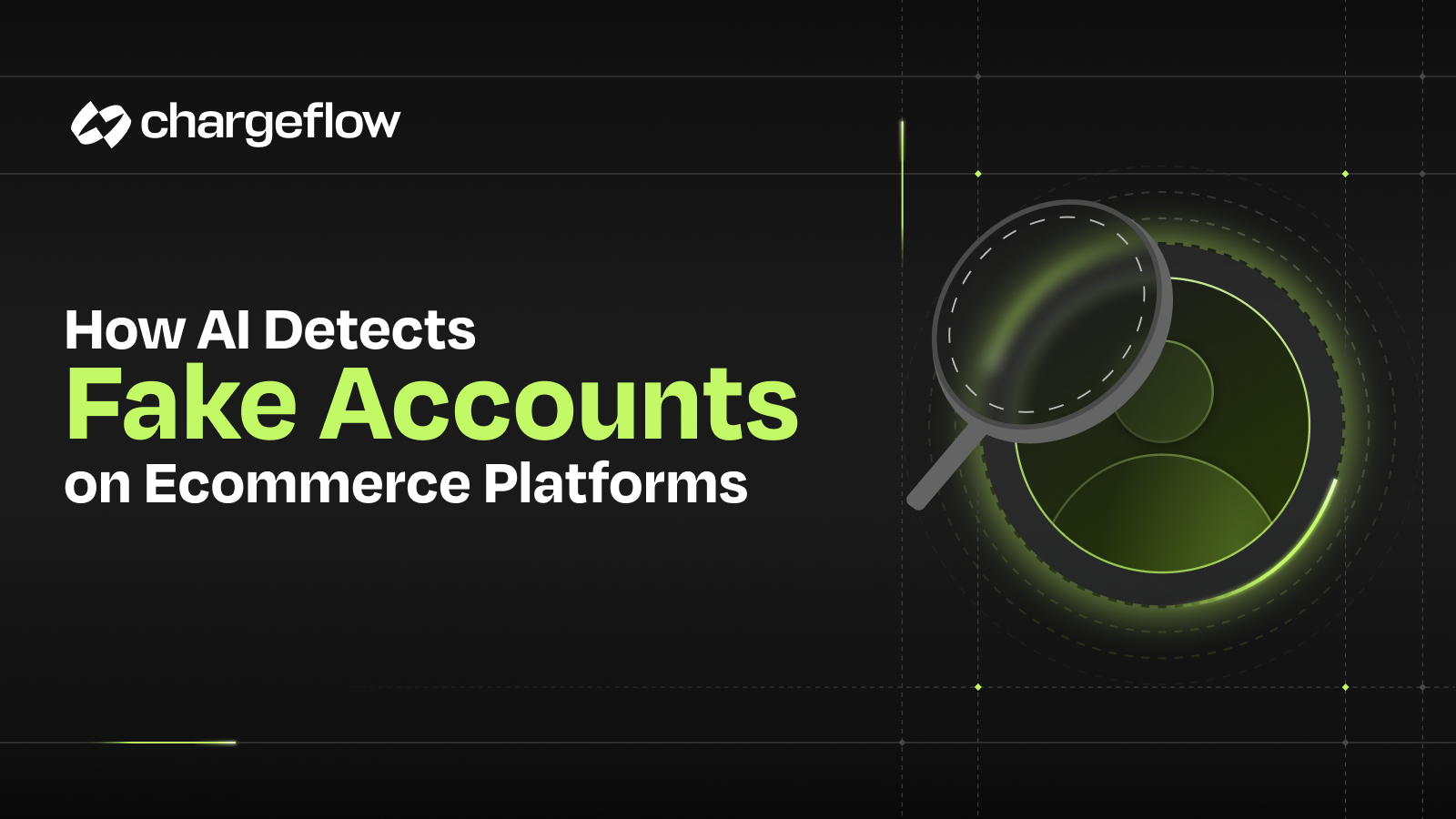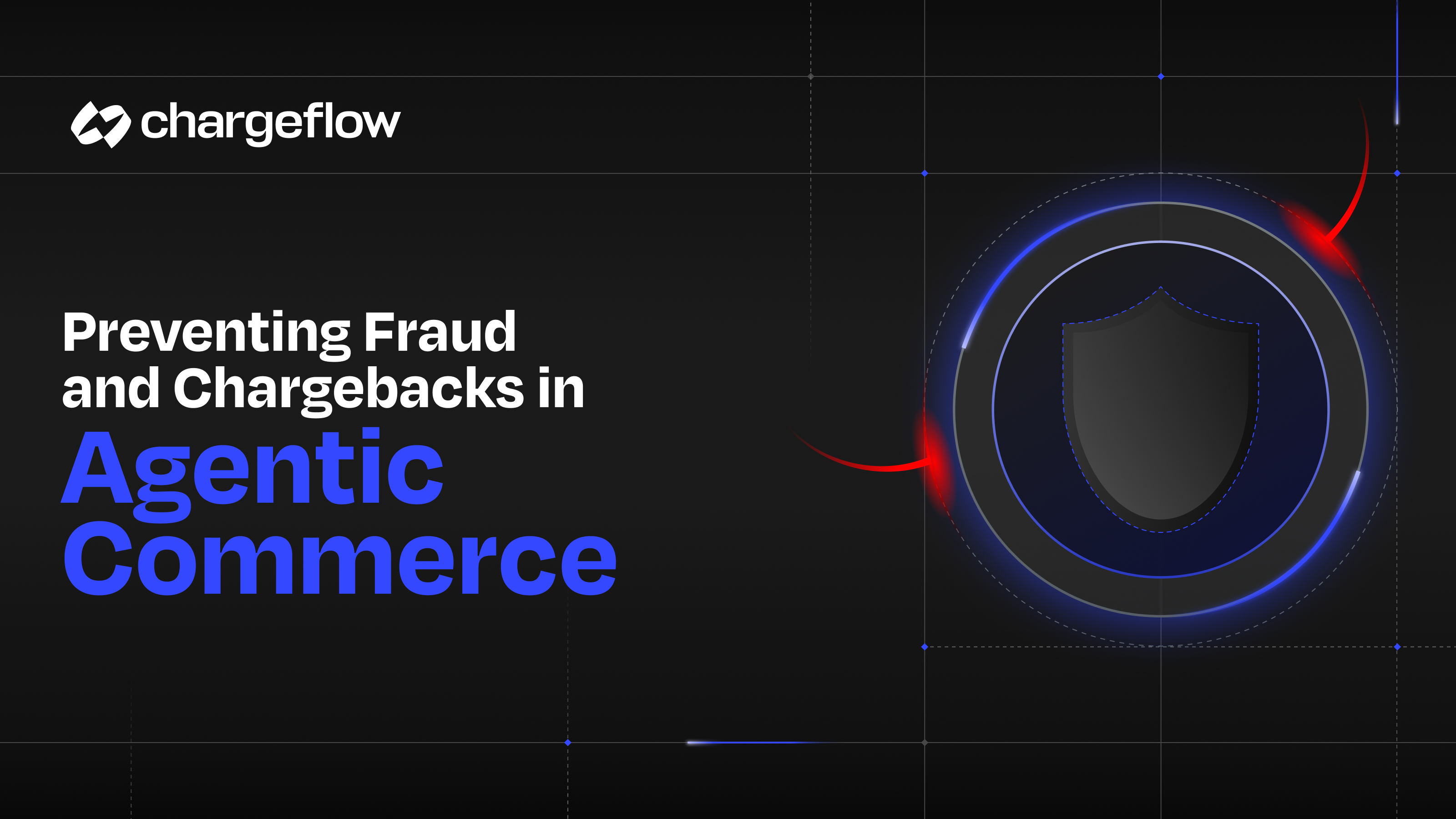Credit Card Chargeback Fraud: Prevention Guide for Merchants

Chargebacks?
No longer your problem.
Recover 4x more chargebacks and prevent up to 90% of incoming ones, powered by AI and a global network of 15,000 merchants.
Stop Credit Card Chargeback Fraud Now! Don't let fraudsters rob you blind. Discover proven prevention strategies for merchants. Read our guide now!
Credit card chargeback fraud is a serious issue that can have devastating consequences for merchants. Fraudulent chargebacks occur when a customer disputes a legitimate transaction, claiming that they did not make the purchase or that the merchandise was defective or not as described. As a result, the merchant is forced to refund the transaction amount and also faces additional chargeback fees and penalties.
Preventing chargeback fraud is essential for merchants as it can lead to financial losses, damage to reputation, and operational disruptions. It is crucial to understand the different types of credit card fraud, such as chargeback fraud, friendly fraud, and identity theft, to implement effective strategies to prevent it.
In this article, we will provide a comprehensive guide on how to prevent credit card chargeback fraud for merchants. We will discuss the chargeback fraud process, the impact of chargeback fraud on merchants, and strategies to prevent it. We will also cover the steps to take when chargeback fraud occurs and provide a chargeback fraud prevention checklist.
By following the information in this guide, merchants can take proactive measures to prevent credit card chargeback fraud, protect their business, and ensure a positive customer experience.
Types of Credit Card Fraud
Credit card fraud is a major concern for both consumers and merchants. It can happen in various forms, including chargeback fraud, friendly fraud, and identity theft. Here, we will discuss each type of credit card fraud in detail.
1. Chargeback Fraud
Chargeback fraud occurs when a customer disputes a legitimate transaction with their bank or credit card company. The dispute process can result in the reversal of the transaction and a chargeback to the merchant.
Chargeback fraud can happen in several ways, including when a customer claims that they did not receive the product or service they purchased or when they claim that the product or service was defective or not as described.
2. Friendly Fraud
Friendly fraud happens when a customer disputes a charge without any malicious intent. It can happen when a customer forgets that they made a purchase, or when they don't recognize the name of the merchant on their credit card statement.
Friendly fraud can also occur when a customer disputes a charge because they were dissatisfied with the product or service they received, even if the merchant delivered as promised.
3. Identity Theft
Identity theft is a type of fraud where someone steals another person's personal information, such as their name, address, and credit card number, to make unauthorized purchases. The fraudulent may use the information to open new credit card accounts or to make purchases using the victim's existing accounts.
Identity theft can be devastating for the victim, as it can take a long time to clear up the fraudulent charges and repair the damage to their credit score.
Impact of Credit Card Chargeback Fraud on Merchants
Credit card chargeback fraud can have a significant impact on merchants, including financial losses, damaged reputation, and operational disruption.
1. Financial Losses
Chargeback fraud can result in significant financial losses for merchants, including lost revenue, chargeback fees, and the cost of replacing or refunding products. In addition, chargeback fraud can result in higher processing fees and a higher risk rating from payment processors, which can lead to higher transaction costs and increased difficulty in obtaining payment processing services.
2. Damaged Reputation
Chargeback fraud can also damage a merchant's reputation, as it suggests that the merchant is unable to provide high-quality products or services, or that their security measures are inadequate. Negative reviews and word-of-mouth recommendations can further harm a merchant's reputation and lead to decreased sales and customer loyalty.
3. Operational Disruption
Chargeback fraud can cause operational disruption for merchants, as they may need to spend time and resources investigating fraudulent transactions, responding to chargebacks, and implementing additional security measures to prevent future fraud. This can lead to increased labor costs, decreased productivity, and a loss of focus on core business activities.
Strategies to Prevent Credit Card Chargeback Fraud
Credit card chargeback fraud is a growing problem for merchants, but there are several strategies they can implement to prevent it.
1. Verifying Customer Identity
Merchants can prevent chargeback fraud by verifying customer identity before processing transactions. This can include verifying the billing address, CVV code, and IP address of the customer. Merchants can also require customers to provide additional verification, such as a photo ID or utility bill, to prevent identity theft.
2. Utilizing Fraud Detection Tools
Merchants can also utilize fraud detection tools to identify suspicious transactions and prevent chargeback fraud. These tools can include machine learning algorithms, behavioral analysis, and transaction monitoring. Merchants can also use third-party fraud prevention services to enhance their fraud detection capabilities.
3. Providing Excellent Customer Service
Providing excellent customer service can prevent chargeback fraud by resolving disputes before they escalate to chargebacks. Merchants should respond promptly to customer inquiries, provide clear and accurate product information, and offer a fair and transparent refund policy. Merchants can also utilize customer feedback to improve their products and services and prevent customer dissatisfaction.
4. Creating Clear Policies
Creating clear policies can prevent chargeback fraud by reducing misunderstandings and disputes. Merchants should provide clear and concise product descriptions, shipping and delivery policies, and return and refund policies. Merchants should also clearly communicate their policies to customers and provide easy access to customer support and dispute resolution processes.
Steps to Take When Credit Card Chargeback Fraud Occurs
Credit card chargeback fraud can be a frustrating and costly experience for merchants. However, there are steps they can take to effectively respond to chargebacks and protect their business.
1. Responding to Chargebacks
When a chargeback is initiated, merchants should respond promptly and provide a clear and concise response that includes evidence to dispute the claim. This response should be submitted within the timeframe established by the payment processor to avoid losing the right to dispute the chargeback. Merchants should also keep records of all communications and evidence submitted to support their case.
2. Evidence Gathering
To effectively dispute a chargeback, merchants must gather and submit compelling evidence to support their case. This evidence may include shipping and tracking information, order details, and customer communication. Merchants should also be prepared to provide additional evidence, such as security camera footage or other documentation that demonstrates the validity of the transaction.
3. Dispute Resolution
If a chargeback dispute cannot be resolved through direct communication with the customer or their bank, merchants can utilize the dispute resolution process offered by their payment processor.
This process typically involves providing evidence to support the merchant's case, which is reviewed by an independent third-party mediator. Merchants should be prepared to provide detailed documentation and be responsive throughout the dispute resolution process.
In addition to these steps, merchants can take proactive measures to prevent chargeback fraud. This may include implementing fraud prevention measures such as address verification, CVV verification, and transaction monitoring. Merchants should also ensure that their customer service policies are clear and well-communicated to avoid misunderstandings or disputes.
Credit Card Chargeback Fraud Prevention Checklist
Preventing credit card chargeback fraud requires a proactive approach to customer identity verification, fraud detection, customer service, and policies. Here are some checklists that merchants can use to prevent chargeback fraud:
1. Checklist for verifying customer identity
- Obtain the customer's name, billing address, and phone number.
- Verify the customer's identity by requesting a photo ID or a selfie with the credit card.
- Use AVS (Address Verification System) to confirm the billing address matches the one on file with the credit card company.
- Use CVV (Card Verification Value) to confirm the customer has physical possession of the credit card.
- Use biometric authentication t.ools such as facial recognition or fingerprint scanning to verify the customer's identity
2. Checklist for fraud detection
- Monitor transaction patterns and identify suspicious activity such as multiple transactions from the same IP address or unusual transaction amounts.
- Use fraud detection software to identify high-risk transactions and potential chargeback fraud.
- Use machine learning algorithms to analyze transaction data and identify fraud patterns.
- Use chargeback alerts to receive notifications when a chargeback is initiated.
3. Checklist for customer service
- Provide clear and concise product descriptions, shipping policies, and return policies.
- Respond promptly to customer inquiries and complaints.
- Provide excellent customer service to prevent disputes from escalating to chargebacks.
- Use customer feedback to improve product offerings and customer service.
4. Checklist for policies
- Establish clear policies for chargeback disputes and dispute resolution procedures.
- Implement fraud prevention measures such as AVS, CVV, and transaction monitoring.
- Train employees on chargeback fraud prevention and dispute resolution procedures.
- Continuously monitor and analyze transaction data to identify potential fraud patterns and adjust policies accordingly.
Final Thoughts
Credit card chargeback fraud can be a significant problem for merchants, resulting in financial losses, damaged reputation, and operational disruption. However, merchants can take various steps to prevent chargeback fraud, such as verifying customer identity, utilizing fraud detection tools, providing excellent customer service, and creating clear policies.
Merchants must respond to chargebacks promptly, gather evidence, and dispute any fraudulent chargebacks. Additionally, implementing a chargeback fraud prevention checklist can help merchants stay organized and minimize their risk of fraud.
Finally, merchants can take advantage of automated solutions like Chargeflow that use AI to prevent and manage chargebacks effectively. Chargeflow provides a sophisticated system that helps merchants track, manage, and respond to chargebacks quickly, ensuring that their business runs smoothly.
In summary, chargeback fraud is a real and persistent threat to merchants. However, by following the strategies and tools outlined in this guide, merchants can minimize their risk of fraud and protect their businesses. If you're looking for an efficient and effective way to manage chargebacks, Chargeflow is an excellent option that can help you automate your chargeback issue and dispute management activities.

Chargebacks?
No longer your problem.
Recover 4x more chargebacks and prevent up to 90% of incoming ones, powered by AI and a global network of 15,000 merchants.






























.png)








